3 - 14 December, 2018 / Katowice
CO2GeoNet
contribution
to COP24


This conference is expected to build on the COP21 Paris Agreement that promises to keep the global temperature rise this century well below 2°C compared to pre-industrial levels and as close as possible to 1.5°C.
The aim of COP24 is to engender urgent action to halt climate change and to prepare for sustainable, low-carbon development under a changing climate.
Achieving the primary goal of the Paris Agreement is vital, but global average temperatures have already increased by around 1°C since pre-industrial times, underlining the need to act now.
Pursuing the Paris Agreement requires rapid reduction of greenhouse gas emissions. It is hoped that the Paris Agreement Work Programme will be finalised at COP24 in Poland, providing a process or 'rulebook' to implement the Paris Agreement.
CO2GeoNet is a pan-European scientific Association, legally registered in France, which joins together 29 partners from 21 European countries, ranging from national geological surveys, through to research institutes and universities, all with a high international profile and critical mass in CO2 geological storage research.
CO2GeoNet is acknowledged as the European scientific authority dealing with all aspects of geological storage of CO2. Through its activities of collaborative research, information and communication, training and scientific advice, CO2GeoNet is durably engaged in enabling the safe and efficient deployment of the CO2 Capture and Storage (CCS) technology in order to mitigate climate change and ocean acidification.
CO2GeoNet is contributing, in collaboration with other international organisations, to side-events and a booth at COP24.
Our role in COP24 is to provide clear and impartial scientific knowledge and to engage in discussions with negotiators and civil society.
Our aim is to communicate the vital role for CCS as an effective and ready-to-deploy technology in reducing CO2 emissions and completing the climate change mitigation portfolio.
Please browse through this website to access the CO2GeoNet presentations and materials made available during COP24.
Event description:
The Paris Agreement requires nations to submit nationally determined contributions. There was also a decision at COP21 which provides for nations to voluntarily submit a long term strategy by 2019 about actions beyond 2050. The CO2 Capture Project, in partnership with ERM consultants, released a report earlier in 2018 that studied the role of CO2capture and geological storage in nationally determined contributions and the midcentury strategies of nations.
Lead organiser: CO2 Capture Project (CCP4) and Chevron
Speakers: Chevron, ERM, IPIECA, International CCS Knowledge Center, CO2GeoNet, IEA GHG R&D Programme, University of Texas at Austin
This year at COP24, the EU offered timeslots to 'meet the expert'.
CO2GeoNet was invited to participate on December 6th (16:30 - 20:00).
There were many lively discussions on the role for CCS in meeting our climate targets, how CO2 storage can reduce emissions from multiple sectors (cement, steel, power, chemicals etc), how geological storage works, synergies with renewables and how CCS demonstrations show that the technology is real and ready to go.
Click on the photo to enlarge
Event location: GIG (Glówny Instytut Górnictwa) - square Gwarków 1, 40-166 Katowice (only 5 minutes walk from the COP24 venue).
Event description:
The event, hosted at GIG (Central Mining Institute), aims to provide agencies, organizations, research institutions, universities, non-governmental organizations (NGOs) and other stakeholders with an opportunity to share their work in the field of climate change and coal region transition, foster information, discuss methodological approaches and experiences deriving from case studies and projects, and provide a platform for networking in view of possible cooperation.
Co-organisers: CO2GeoNet and Glówny Instytut Górnictwa GIG
Thematic focus: Climate mitigation, CO2 removal, negative emissions
Event description:
In many scenarios, Negative Emission Technologies (NETs) form an integral part of achieving the well below 2 degree target in the Paris Agreement. This session will consider the role for NETs, their current state of readiness, costs and impacts and will provide examples of projects where CO2 is being or will be captured from the air and stored at the earth’s surface or in the subsurface to achieve negative emissions. Potential Negative Emission Technologies include BECCS and DACCS, enhanced weathering and forestation.
Organiser: CO2GeoNet
This session is in the framework of a series of events organized by DG Climate Action around the EU Long-term strategy (LTS) for abating GHG emissions until 2050.
Speakers: DG Climate Action, Mercator Institute, FERN, European Parliament
 Click on the photo to see more
Click on the photo to see more
Information is given for non-specialists on the science behind CO2 geological storage and why we need it, as a credible and flexible technology to limit emissions of antropic carbon dioxide in the atmosphere, so helping reducing global changes.
Rock samples, videos and brochures (downloadable in many languages) are available at the booth.
Co-organisers: CO2GeoNet, Taiwan Carbon Capture Storage and Utilisation Association (TCCSUA), CCSA, IEAGHG, U Texas at Austin
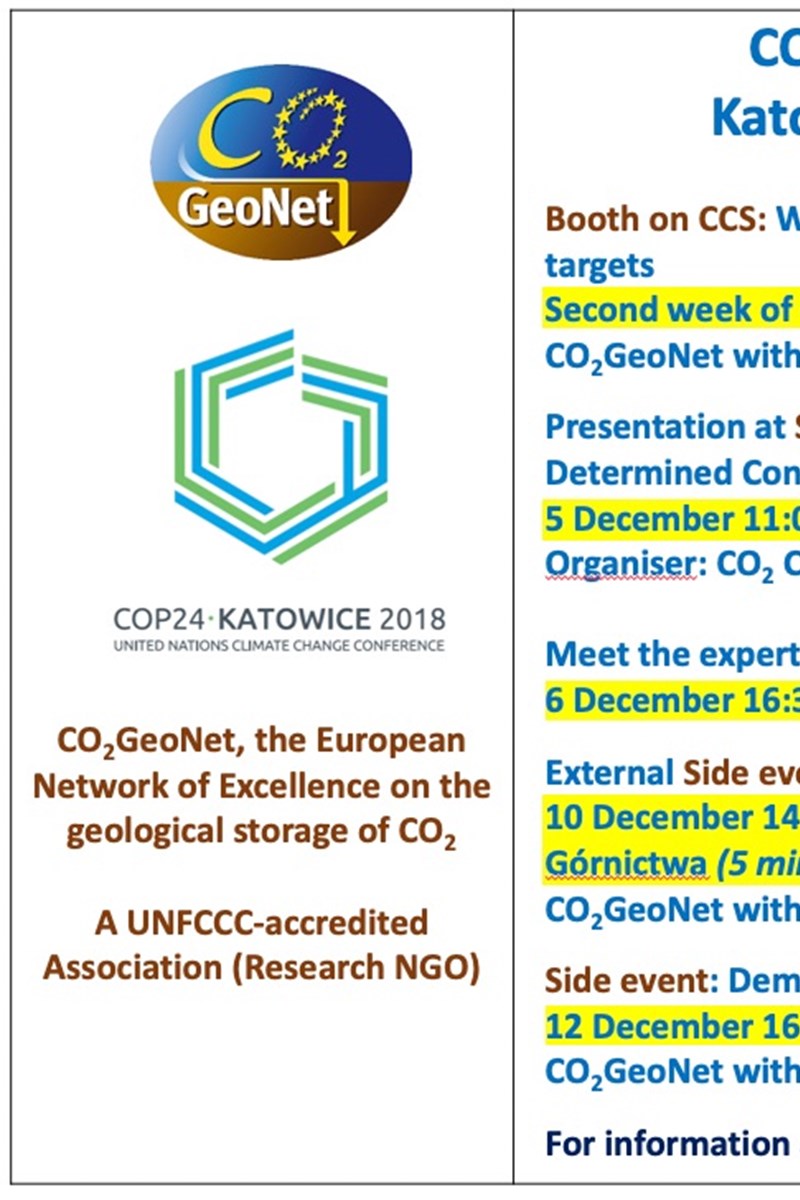
CO2GeoNet and partners
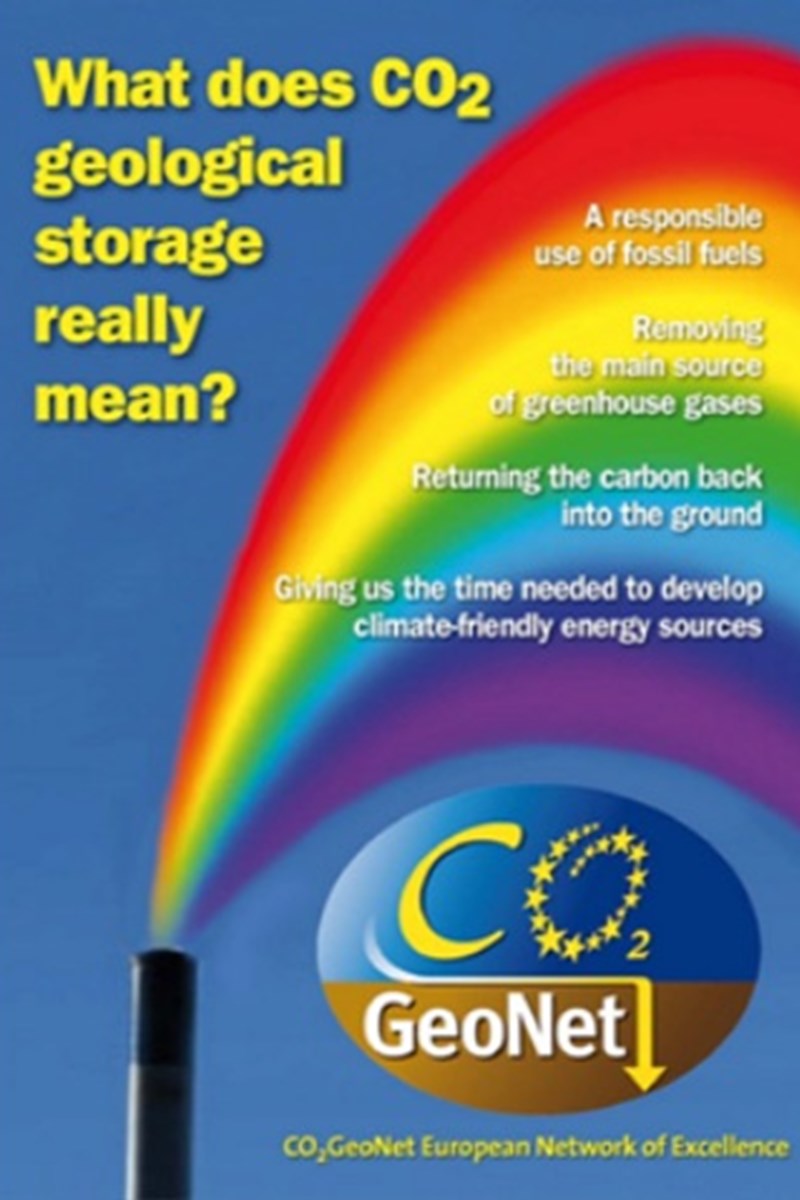
CO2GeoNet
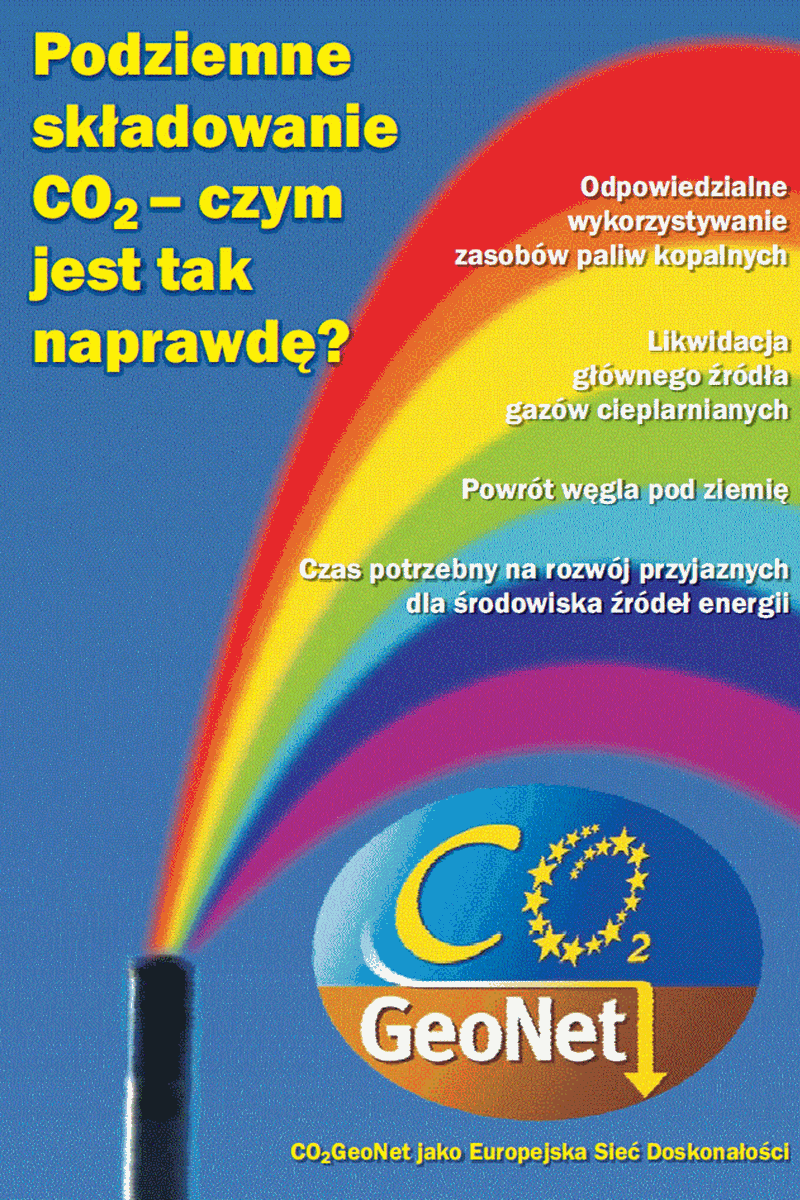
CO2GeoNet
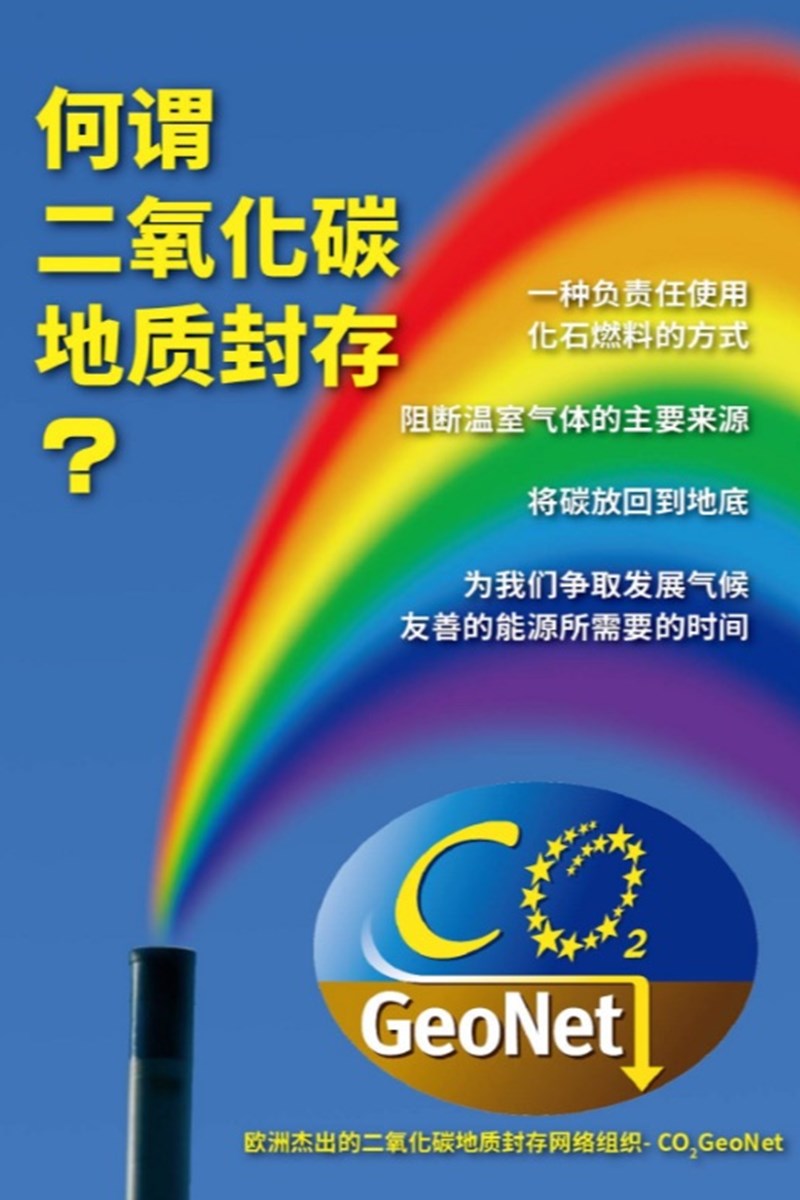
CO2GeoNet translated by TCCSUA
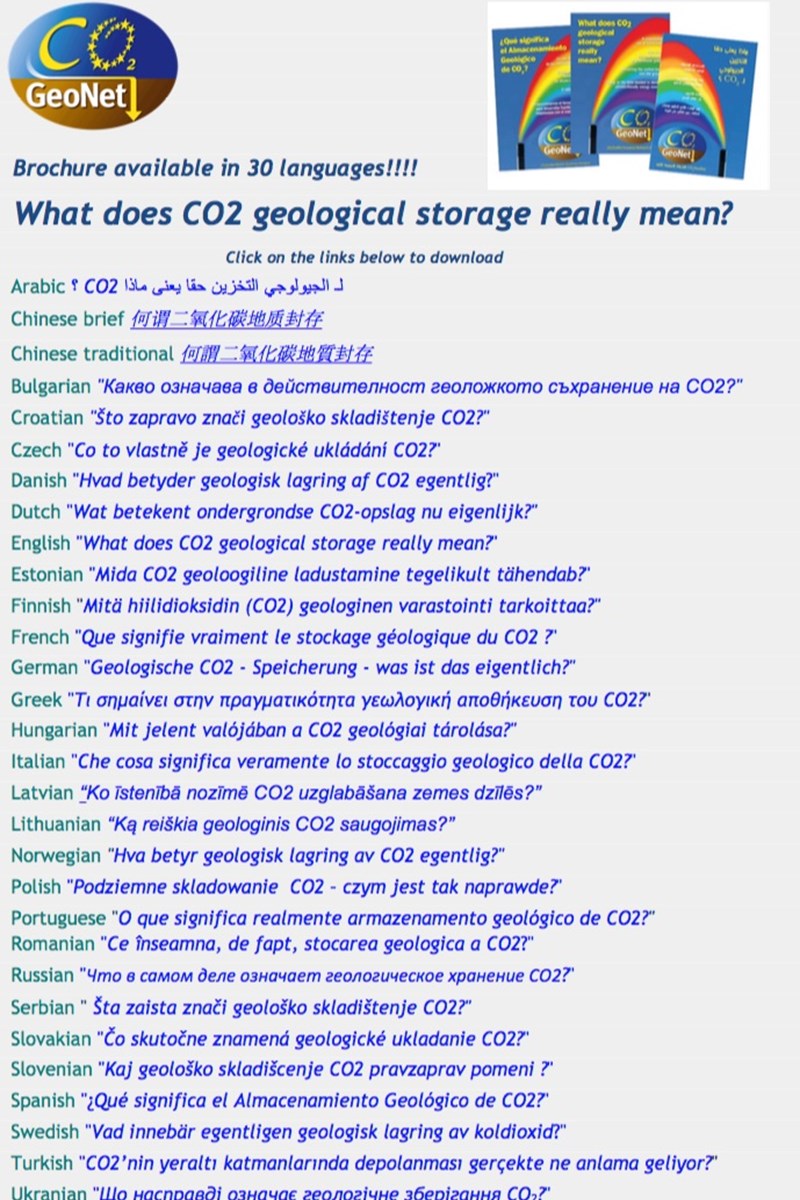
CO2GeoNet
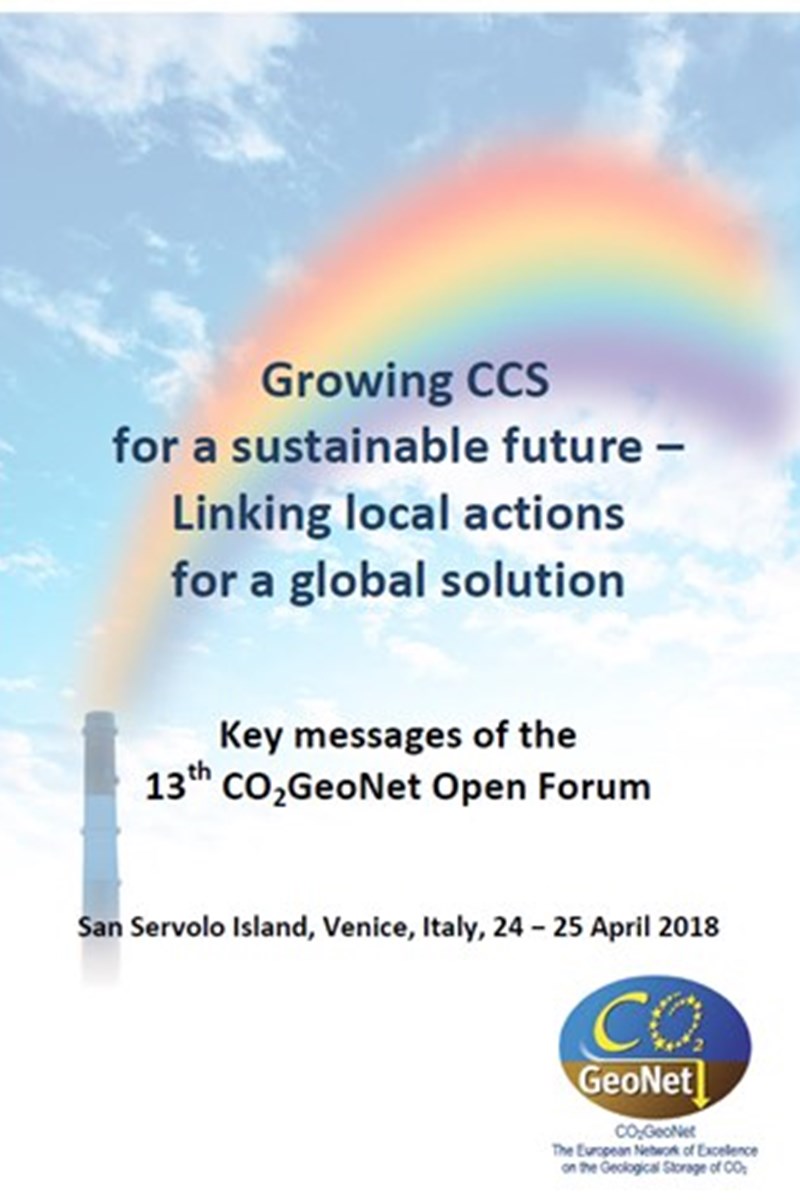
CO2GeoNet
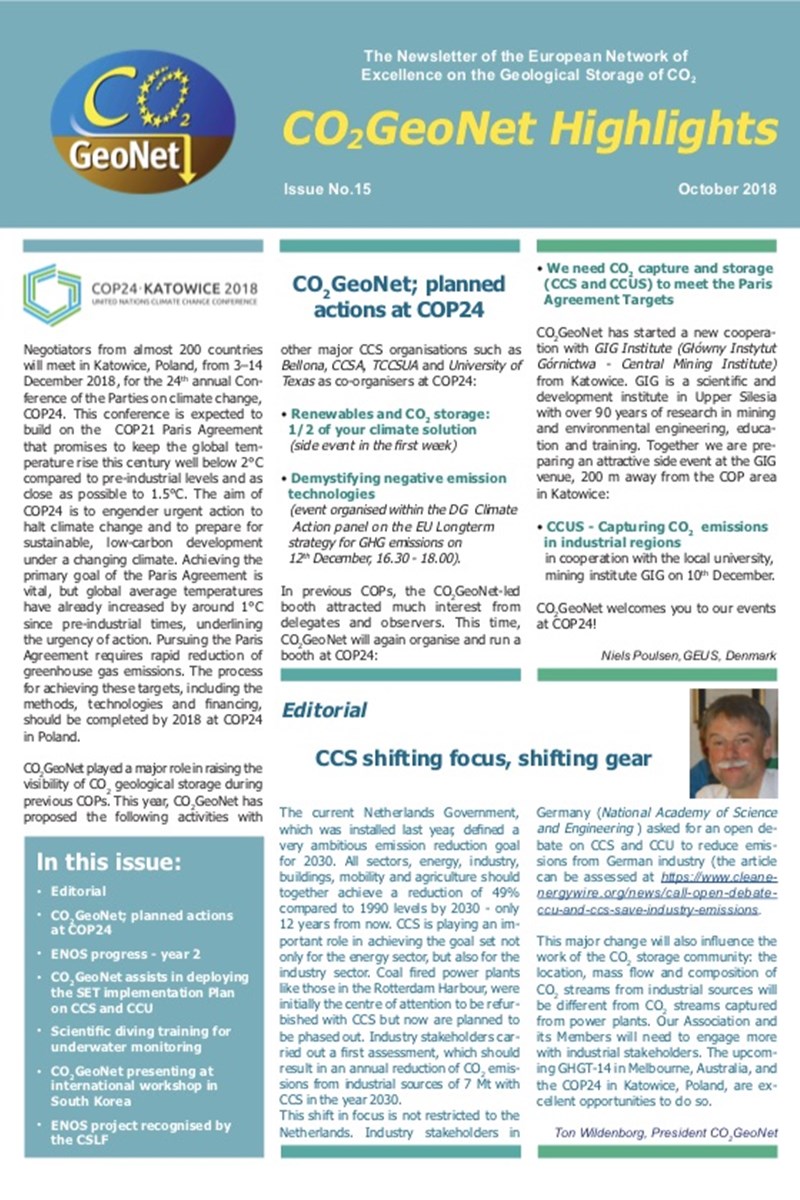
CO2GeoNet
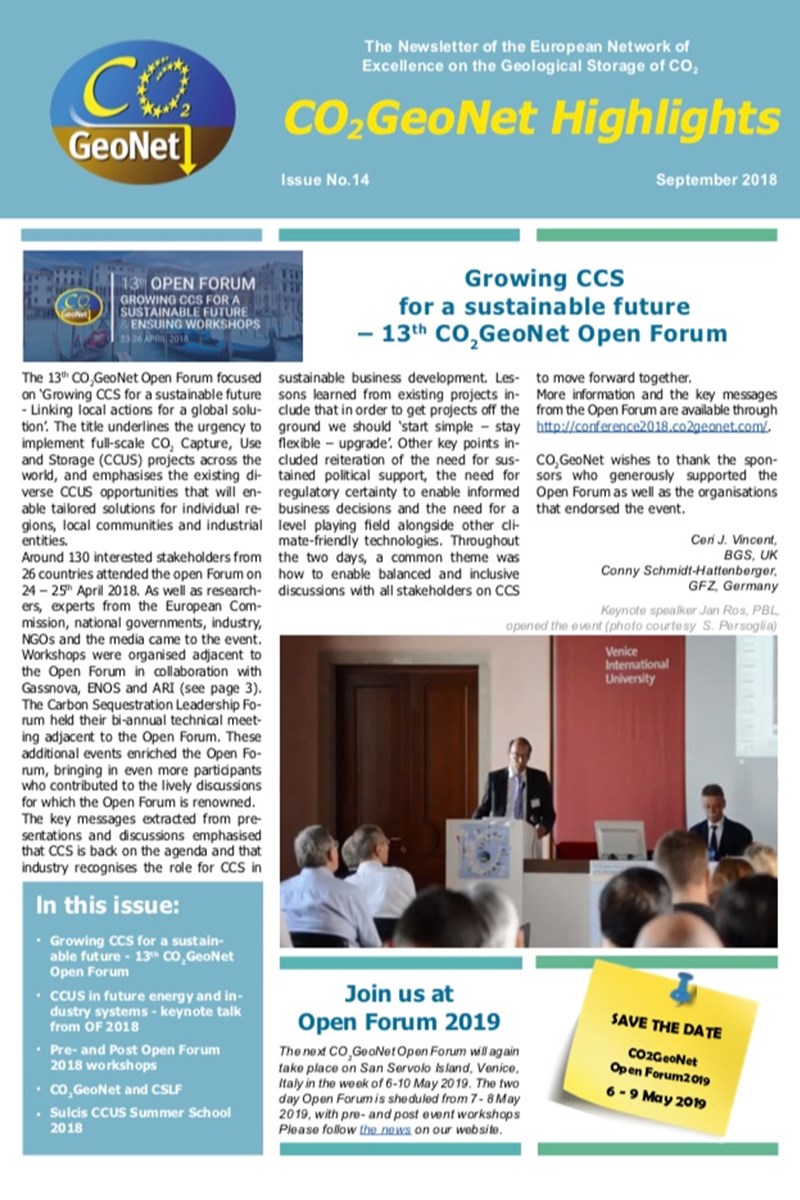
CO2GeoNet
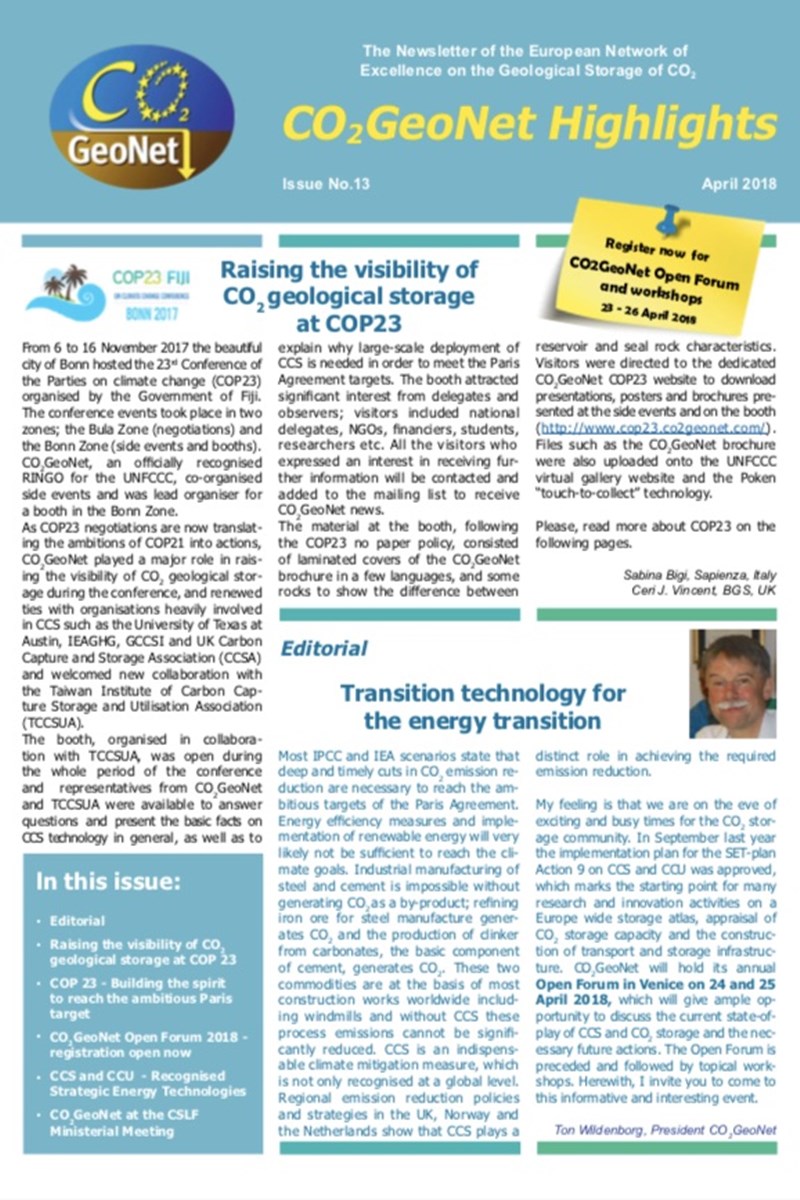
CO2GeoNet
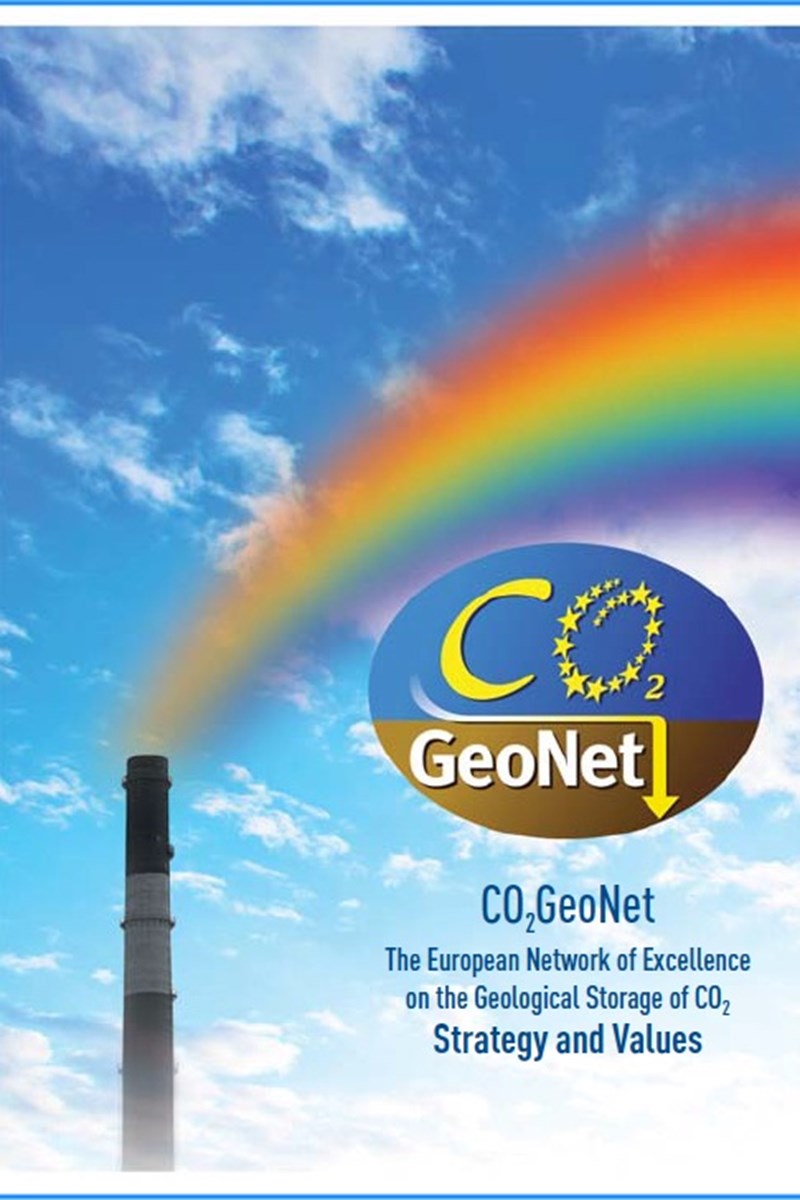
CO2GeoNet
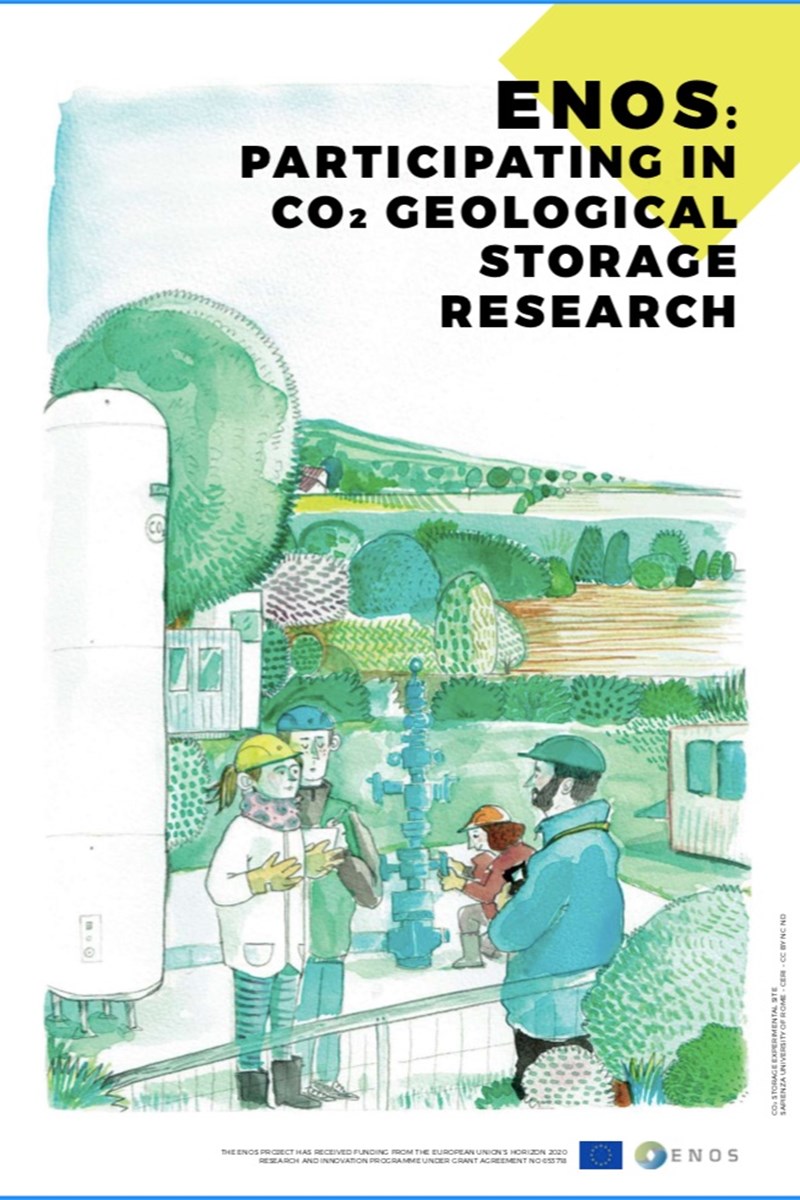
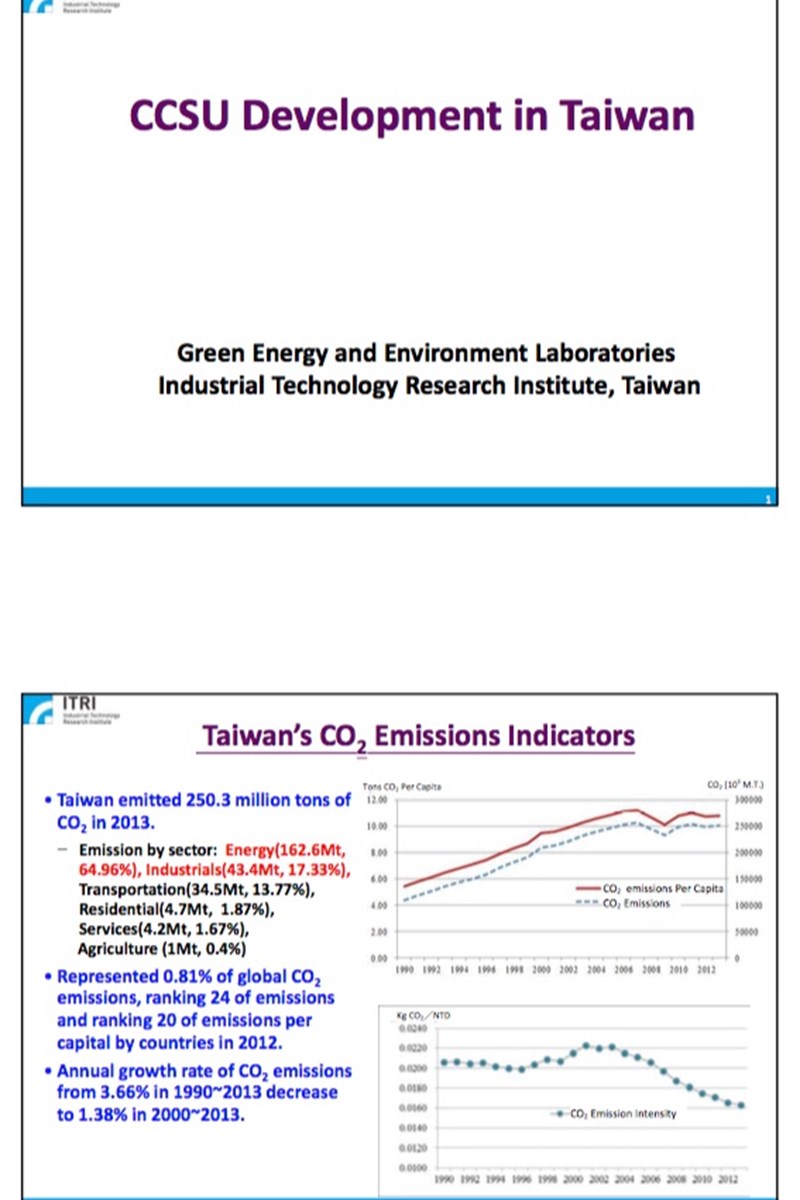
Taiwan Carbon Capture Storage and Utilization Association
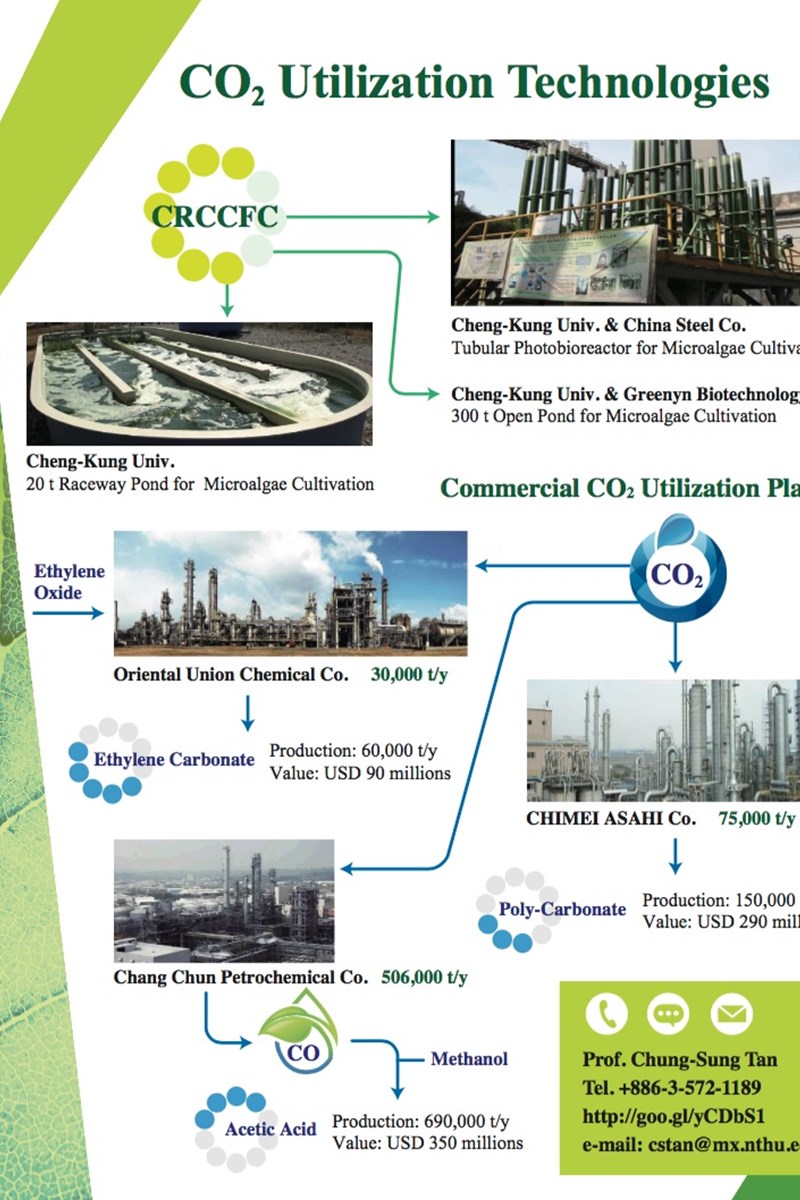
TCCSUA
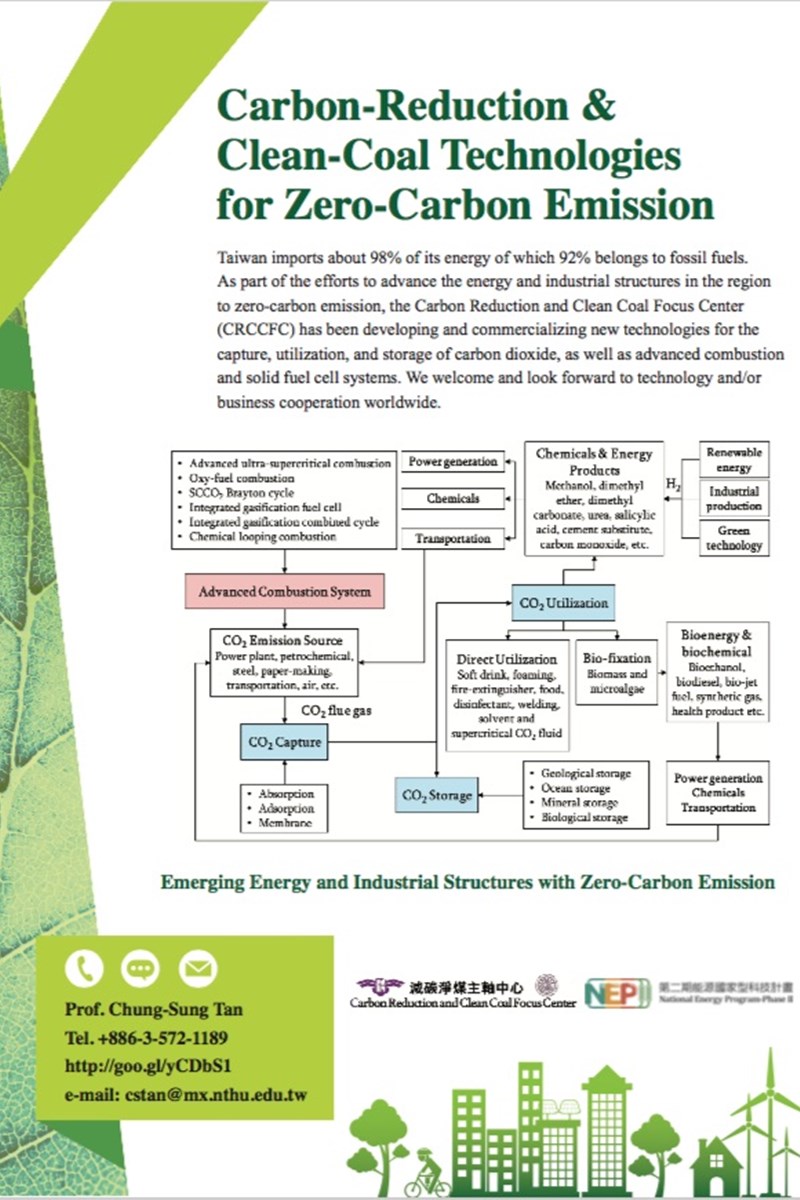
TCCSUA
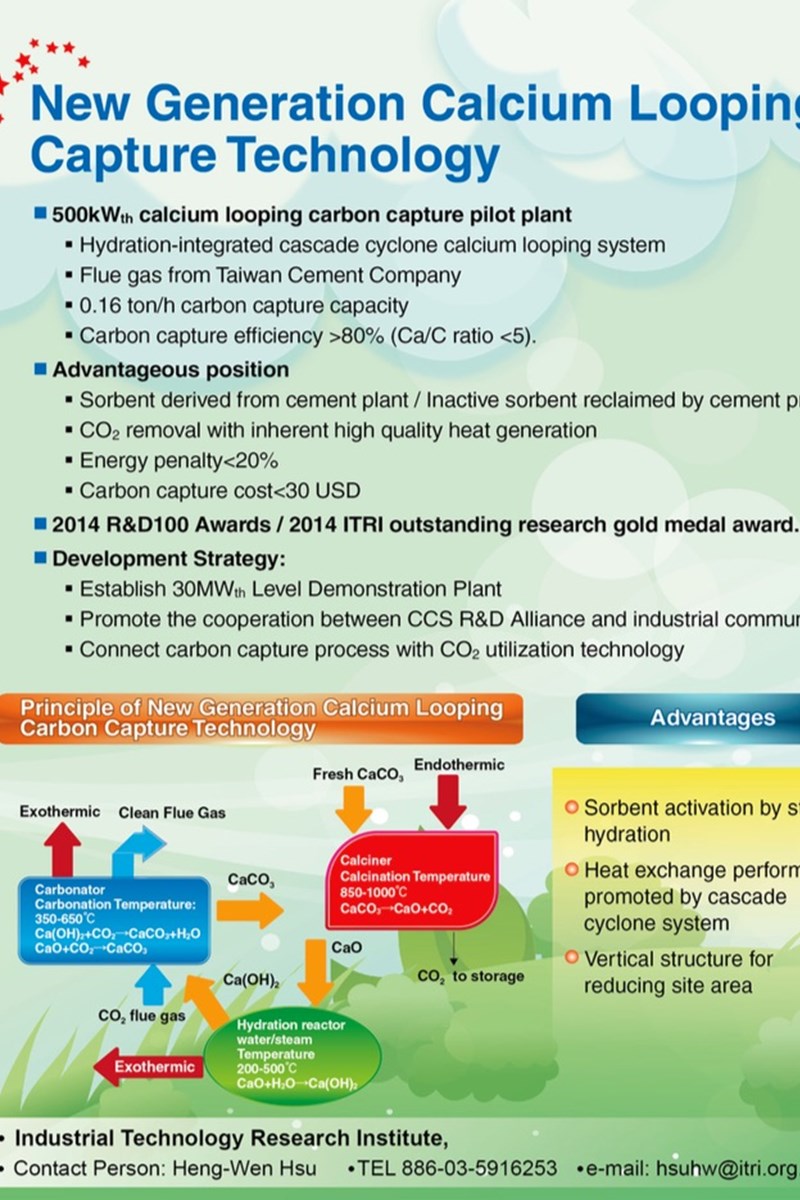
TCCSUA